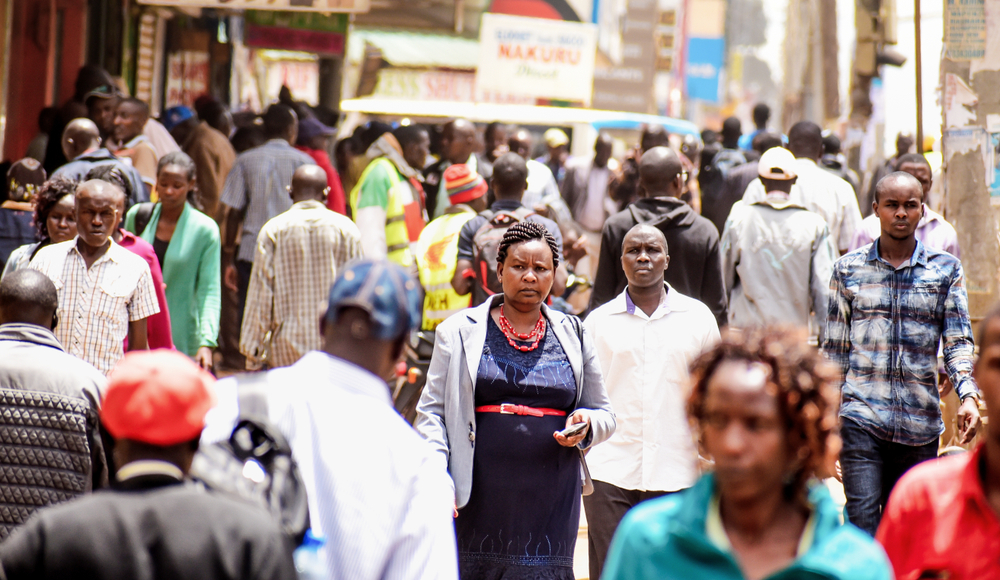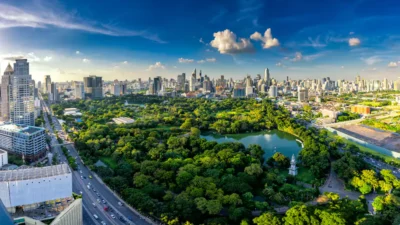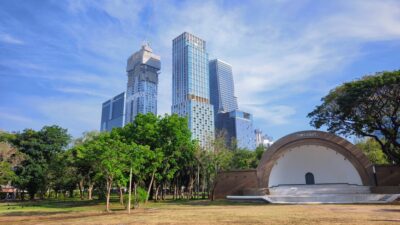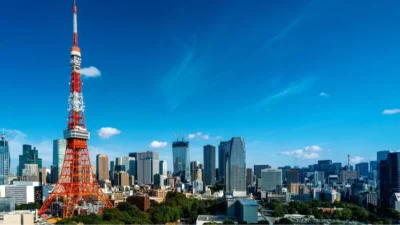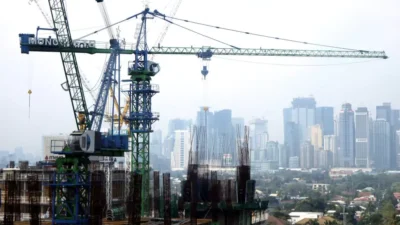Nairobi reinvents itself to be an economic powerhouse
Nairobi’s luxury residential and retail market has slowed after years of breakneck progress, but the potential of Kenya as an investment hub has yet to be derailed
For evidence of Kenya’s prosperity, one need not look further than the Two Rivers Mall in Nairobi. Situated on bustling Limuru Road, the largest shopping centre in East Africa features a wide range of international luxury brands encased in a gleaming, ultra-modern space. Shoppers perusing the wares often linger to catch a live jazz performance.
This vision of contemporary opulence represents a bold, optimistic vision for the future of both Nairobi and the country. Whereas a generation or two ago, Kenya beckoned tourists with images of lions lolling on the savannah, now it hopes to attract high-flying entrepreneurs and creatives to its urbane capital.
Despite periodic political instability, Kenya has experienced relatively consistent economic growth over the years. As the African headquarters of both the United Nations and a number of international corporations, the nation has enjoyed the influx of wealth and trade that comes with being the de facto regional hub.
The number of high-net-worth individuals (HNWI) in the country has steadily increased, with 300 new dollar millionaires added in 2018, a few of whom have opted to invest their wealth into the country’s luxury residential property market.
More: Hong Kong, Tokyo home to the world’s most expensive ultra-prime houses
According to the Attitudes Survey for the Knight Frank Wealth Report 2019, “18 percent of HNW Kenyans bought new homes in the country in 2018 compared to 8 percent who bought houses abroad,” says Anthony Havelock, head of agency at Knight Frank Kenya. “It is a similar trend for investment properties.”
While Two Rivers Mall may currently be one of the most prestigious pieces of commercial real estate in town, it’s just one of a dozen upscale shopping complexes. Down the road lies Village Market, where well-heeled locals and expats shop and dine on sushi or stop by an artisanal bakery for a warm chocolate croissant with a glass of bubbly.
Over in one of Nairobi’s most popular suburbs lies The Hub Karen, an impeccably stylish open-air oasis home to shops showcasing a mix of established international brands and rising Kenyan designers. Many of these immaculate complexes are self-contained ecosystems, complete with five-star boutique hotels and condominiums.
But as flashy as these developments in Nairobi’s residential and retail markets appear to some, international investors may want to think twice before taking the plunge at this point in time. In a rush to capitalise on that growing national sense of optimism, too many developers have jumped into the frenzied building fray. The result: a market currently struggling to cope with a glut of high-end properties.
“The oversupply experienced in the shopping centre market has resulted in lower occupancies and to having a predominantly tenants’ market,” says Havelock. “This has caused downward pressure on rentals and consequently, on returns for developers. Investors are now diversifying away from retail developments and we expect to see fewer malls being built.”
Unfortunately, the same trend extends to the residential sector. Many residential units attached to these new shopping centres were constructed in anticipation of a booming demand that is not quite there yet. “Oversupply in luxury residential has resulted in the commencement of a price correction as it has now become a buyers’ market,” adds Havelock. “The market is also experiencing fewer transactions due to the tough economic conditions in the country. In addition, we are seeing less investments in new-build as developers allocate finances to other asset classes.”
Effectively, buyers can get good deals owing to the current wave of price correction. The cyclical nature of the real estate market means buyers who invest now will realise higher values in the future
Many analysts believe it will take a considerable period of time for the market to fully absorb the current oversupply. In other words, the property bubble may have already begun to burst, but prices have not finished falling. “Property values are still relatively high even with the current correction, and therefore further corrections are expected,” Havelock says.
While the prognosis for the immediate future may sound bleak, this should not dissuade investors entirely. A number of factors indicate that Kenya remains well-poised for long-term growth. Although the country has not received the economic boost it should have from the largely Chinese-funded multibillion-dollar infrastructure projects currently underway, these still have the potential to position the nation as a primary hub of trade for the African continent.
As wealth continues to trickle into the economy thanks to Kenya’s political importance, natural resources, and stable tourism industry, residential property values in Nairobi are bound to recover and increase in the long run. For savvy investors, there may even be a few bargains to be had in this current climate. “Effectively, buyers can get good deals owing to the current wave of price correction,” Havelock says. “The cyclical nature of the real estate market means buyers who invest now will realise higher values in the future.”
More: Myanmar gets a dose of retail therapy
In the meantime, international investors would be wise to exercise caution. And when in doubt, seek local expertise before buying into Nairobi’s luxury residential market. What is reassuring, however, is the fact that developers are already taking steps to address the issue.
Not only have there been significantly fewer prime units being built, developers are likewise wary of any property that might ultimately become a liability. This closer eye on the details, simply put, means investors can expect fewer units, but of a higher quality.
“Developers are putting up higher-specification properties when they decide to invest, so as to satisfy the market,” Havelock says. “Best-in-class real estate still attracts interest and is selling.”
For the time being, the promise represented by the Two Rivers Mall has yet to fully materialise. Much like China, which erected upscale shopping centres and condominiums all over second- and third-tier cities where few citizens could afford them, Kenyan developers may have overestimated the local demand for such properties.
Nevertheless, the desire for quality is there, especially in an increasingly cosmopolitan Nairobi. International investors may want to bide their time before diving into this particular luxury residential market; however, those who do so wisely may be very glad they did so down the road.
This article originally appeared in Issue No. 157 of PropertyGuru Property Report Magazine
Recommended
Meet the architect rethinking disability in urban spaces and how cities can be reimagined
Author David Gissen outlines his vision for urban development that takes the needs of disabled citizens into consideration
Why Asia’s mixed-use developments are the future of real estate
Dynamic integrated communities are fusing real estate with commercial, leisure, and other amenities
Transforming cities worldwide: Surbana Jurong’s vision for the future
Surbana Jurong excels in master planning, infrastructure, and urban development
Inside Asia’s commercial real estate: The cities thriving and those facing tough times
Shifting consumer preferences, and fluctuating economic policies mean commercial real estate investors in Asia must remain agile


